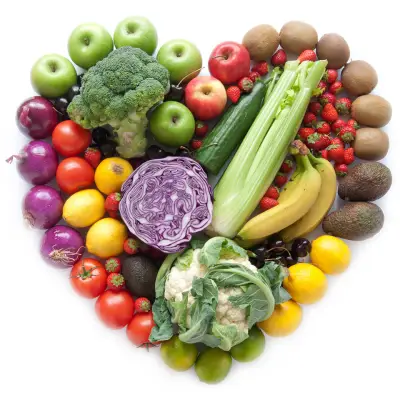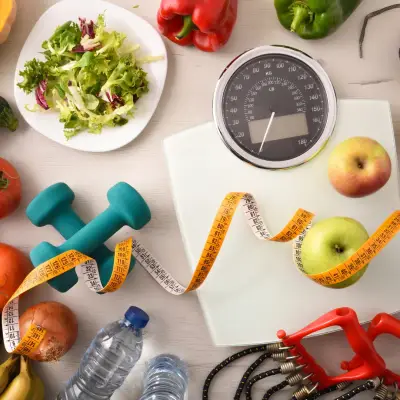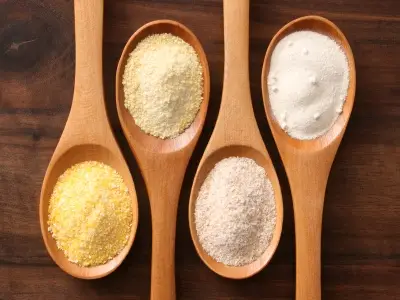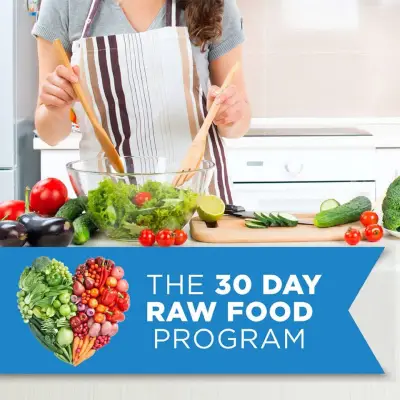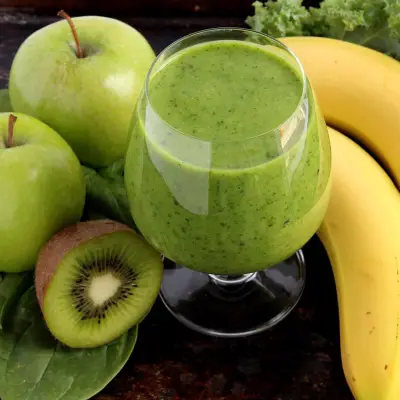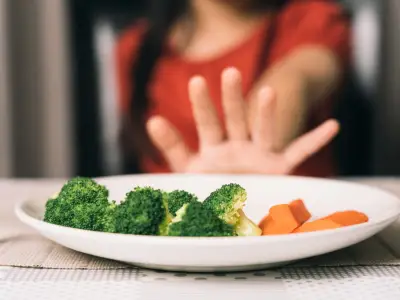Exploring a vegan raw food diet is an exciting adventure into the world of natural, uncooked nourishment. It's a way to reconnect with the very essence of eating, focusing on raw vegan foods that are as close to their natural state as possible.
Whether you're curious about raw veganism for its health benefits or environmental reasons or simply to try something new, this guide covers everything. We aim to demystify what it means to follow a raw vegan diet, covering the benefits and challenges.
Jump to:
Recommended for you!
Best SellersWhat is Raw Veganism?
Raw veganism combines the principles of veganism with those of raw eating. This means consuming plant-based foods that haven't been heated above a certain temperature, usually around 48°C (118°F).
The idea is to preserve the nutritional integrity of foods, which can be compromised by cooking. Raw vegan foods include fresh fruits and vegetables, nuts, seeds, sprouted grains and legumes, seaweeds, and other natural foods in their unprocessed form.
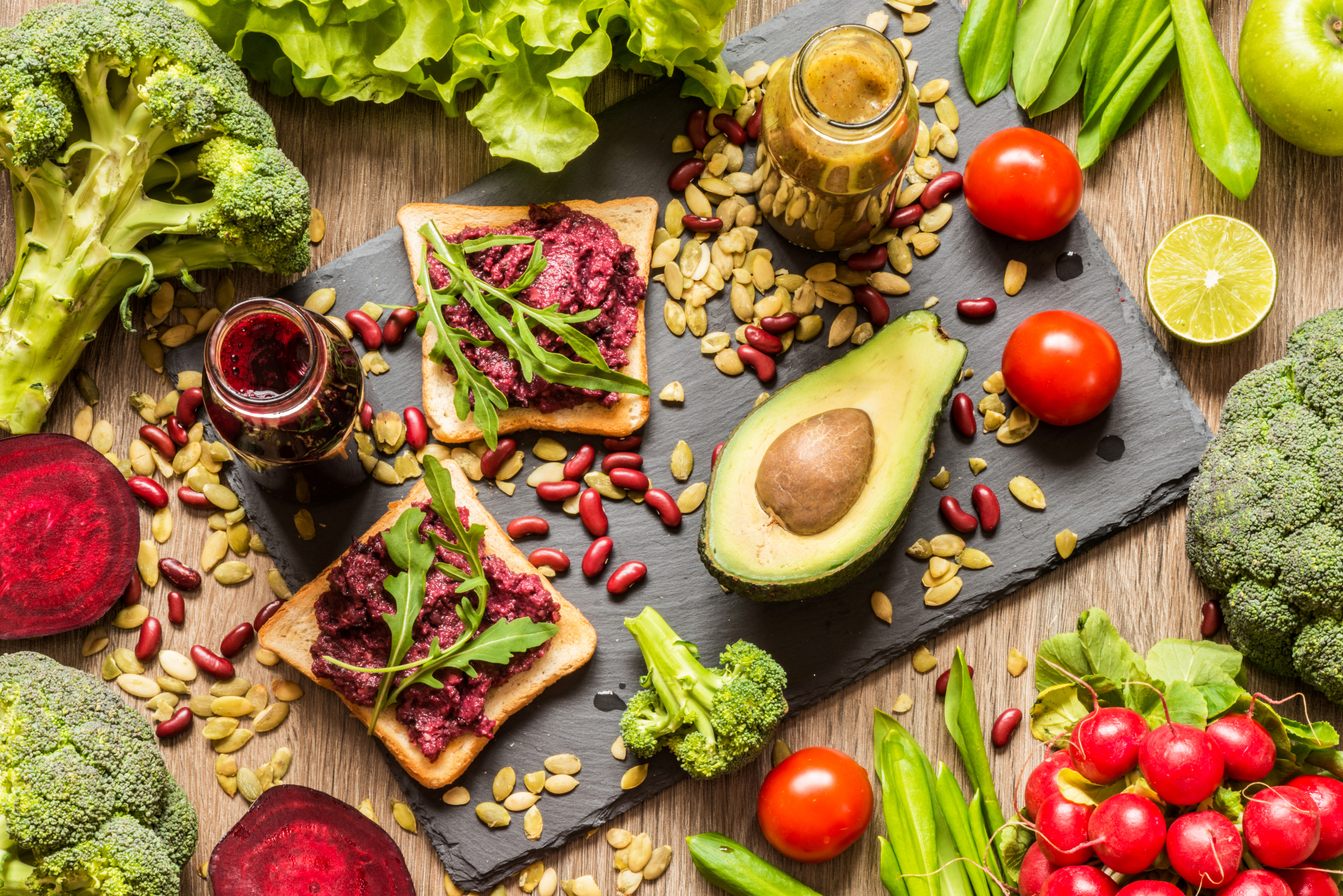
Benefits of a Raw Vegan Diet
Embracing a diet of raw foods can offer numerous health benefits, including:
- Improved Energy Levels: Many who follow a raw vegan diet report a significant boost in their energy. This could be attributed to the high nutrient density of raw foods, which are rich in vitamins and minerals essential for energy production.
- Better Digestion: The raw vegan diet is high in fibre, which aids digestion. Raw foods can help improve gut health, leading to more efficient digestion and absorption of nutrients.
- More Youthful Complexion: The antioxidants and hydration found in raw fruits and vegetables can positively affect skin health. This diet may lead to a clearer, more glowing complexion.
- Weight Loss: Due to its focus on whole, nutrient-dense foods and the exclusion of processed and high-calorie foods, following a raw vegan diet can lead to natural weight loss.
- Deep Connection with Food: Raw veganism encourages a more mindful approach to eating. You’ll learn to appreciate the taste, texture, and nutritional value of foods in their natural state.
- Greater Appreciation for the Natural World: This diet promotes awareness of the environment and sustainability, fostering a deeper respect for nature and the foods it provides.
- Enhanced Mental Clarity: Some followers of the raw vegan diet report experiencing improved mental clarity and focus, possibly due to the elimination of processed foods and the high intake of nutrient-rich, natural foods.
- Increased Nutrient Intake: Cooking can destroy some of the vitamins and enzymes present in food. Raw foods ensure these nutrients are preserved, allowing for maximum nutritional benefit.
- Support for Heart Health: The raw vegan diet is low in saturated fats and high in fibre, which is beneficial for maintaining healthy cholesterol levels and supporting heart health.
- Reduced Risk of Chronic Diseases: The diet’s emphasis on fruits, vegetables, nuts, and seeds can help reduce the risk of developing certain chronic diseases, such as heart disease, diabetes, and some cancers, thanks to the high levels of antioxidants and phytonutrients in these foods.
- Sustainable Weight Management: Unlike diets that focus on calorie restriction, the raw vegan diet promotes a healthy relationship with food that can lead to sustainable weight management without counting calories.

What Can You Eat on a Raw Vegan Diet?
A rich and varied raw vegan diet offers many delicious and nutritious options. Here's a closer look at the staples:
- Fruits and Vegetables: The backbone of raw veganism, these can be enjoyed in abundance. They provide essential vitamins, minerals, and fibre.
- Nuts and Seeds: Great sources of protein and healthy fats. They can be eaten whole, sprouted, or blended into sauces and dressings.
- Sprouted Grains and Legumes: Sprouting increases the nutrient availability and digestibility of grains and legumes.
- Superfoods and Seaweeds: Items like spirulina, chlorella, and seaweeds offer concentrated nutrients and unique health benefits.
Navigating The Challenges of a Raw Vegan Diet
While raw veganism is incredibly rewarding, it can come with its challenges. Ensuring you're getting enough calories and a balance of nutrients is essential. Here are some common concerns and how to address them:
- Protein: Incorporate a variety of nuts, seeds, and sprouted legumes into your diet to meet protein needs.
- Vitamin B12: Supplementing is essential, as B12 is not readily available in plant foods.
- Caloric Intake: High-fibre, low-calorie fruits and vegetables might not provide enough energy for some. Avocados, nuts, and seeds can help increase your calorie intake.
5 Raw Food Techniques For Everyday Health
How can you make your raw diet exciting? Here are five raw food preparation techniques to practice:
Juicing
Today’s juicers and blenders are far from basic. The best ones tend to press the juice out of the fruit and vegetables, meaning you retain more of the fibre and nutrients of the whole food. Your juice will contain micronutrients, vitamins, minerals and plant nutrition.
Start your morning with 100% raw juice, aiming to include at least 50% vegetables (leafy greens are good). Add avocado for healthy fats (Important Note: Avocado should be blended with the juice once the juice has been made, rather than the avocado being juiced).
Fermenting
It’s easy to set up a home fermenting kit to make sauerkraut, kefir and other healthy fermented foods and drinks. The value of fermented foods lies in the healthy natural bacteria, which balances gut health and promotes better digestion.
Homemade sauerkraut is cheap, easy to make, and a great addition to lunches, salads and snack plates.
Spiralising
Spiralisers are cheap and easy to store in your kitchen, so you can use them as often as you want. Spiralise vegetables (good choices are courgettes/zucchini, sweet potatoes, carrots) to make long, noodle-type strips which can be used in salads or main meals.
Spiralised vegetable noodles with homemade hummus or pesto make a delicious and fresh meal.
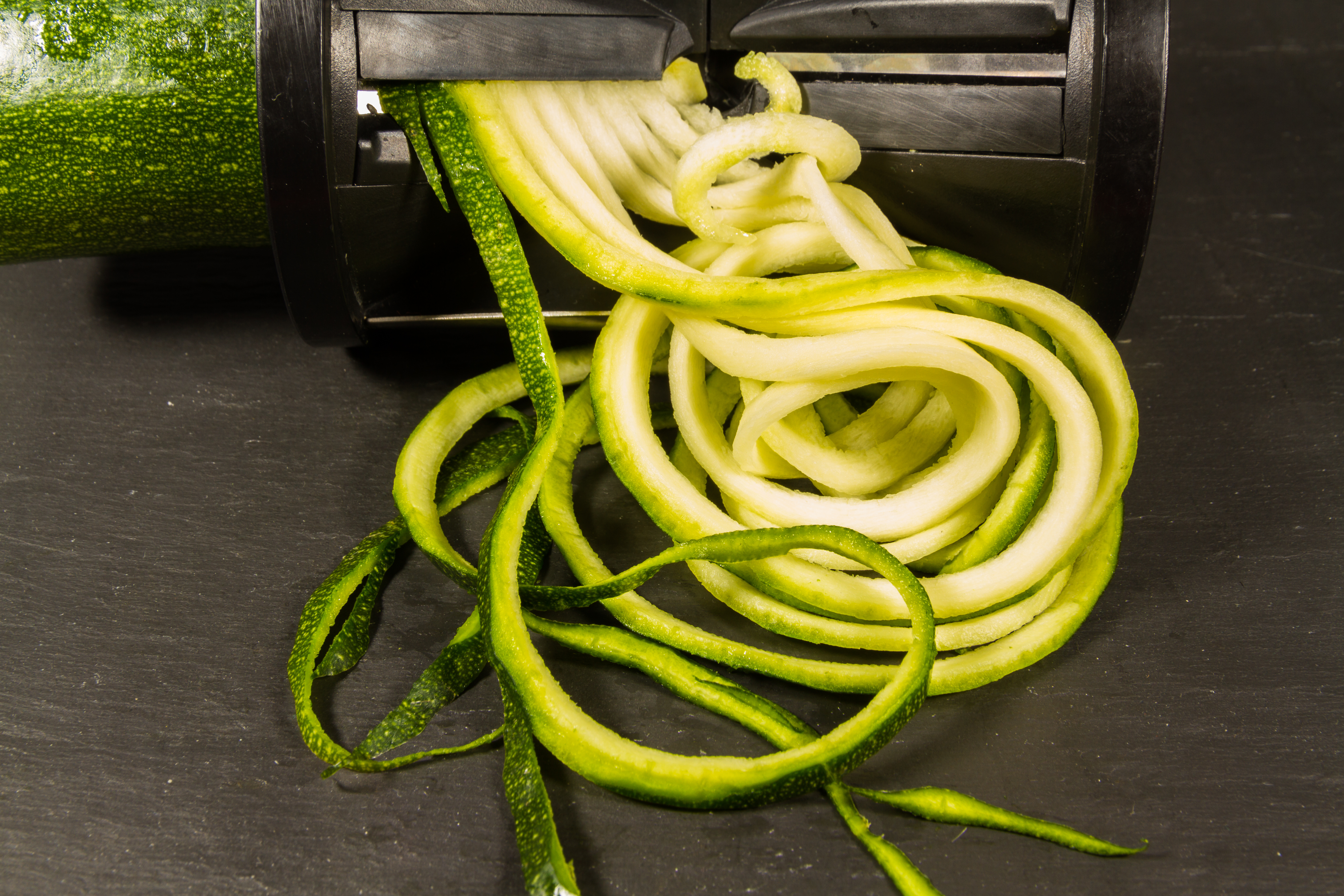
Dehydrating
Dehydrating kits and techniques are widely available and practical. Dehydrating uses very low temperatures to preserve the raw integrity of the ingredients. You can dehydrate fruit, vegetables and even pulses, like chickpeas.
For kids' lunch boxes, make your own fruit leathers. For grown-ups, make homemade kale chips.
Sprouting
Spouting beans, pulses and vegetables at home is a fun and very healthy way to add raw food into your daily diet. It can also be educational for children (young kids seem to love watching “their” sprouts grow).
You can then add sprouted beans to salads for a super-boost of nutrients.
Raw Food Diet Recipes and Meal Ideas: An Example Week
Need some inspiration? Here's an example of a week's diet full of vibrant and nourishing raw food recipes to inspire your journey into raw veganism. Each day offers a balanced mix of flavours and nutrients to energise and satisfy.
| Day | Breakfast | Lunch | Dinner | Snacks |
| Monday | Mango and spinach smoothie with almond butter | Spiralised courgette noodles with avocado pesto | Stuffed bell peppers with sprouted quinoa and vegetables | Apple slices with raw almond butter |
| Tuesday | Mixed berries with chia seeds and raw agave nectar | Raw tomato basil soup with mixed greens salad | Raw vegan sushi rolls with cauliflower rice | Raw veggie sticks with hummus |
| Wednesday | Banana, blueberries, kale, and flaxseed smoothie | Raw pad Thai with spiralised vegetables and almond sauce | Marinated mushroom caps with cashew herb cheese | Handful of raw trail mix |
| Thursday | Acai bowl with strawberries, kiwi, and granola | Spring salad with leafy greens, edible flowers, and avocado | Raw lasagna with courgette, walnut meat, and cashew ricotta | Fresh peach or nectarine slices |
| Friday | Green detox smoothie with cucumber, apple, lemon, ginger | Carrot and beetroot noodles with creamy tahini dressing | Avocado and lime tartare on flaxseed crackers | Dehydrated kale chips |
| Saturday | Chia pudding with almond milk, mango, and coconut | Gazpacho with raw almond falafel balls | Raw pizza with cauliflower crust and sundried tomato sauce | Sliced cucumber and cherry tomatoes |
| Sunday | Papaya and lime bowls with fresh mint | Mixed berry salad with raw honey and lemon zest | Raw vegetable nori wraps with tahini sauce | A bowl of activated almonds |
Making the Transition
If you're considering transitioning to a raw vegan diet, start slowly. Introduce more raw foods into your meals gradually and listen to your body. It's a personal journey; finding what works best for you is key.
Common Questions About a Raw Vegan Diet
Can You Survive on a Raw Vegan Diet?
With careful planning and a varied selection of foods, you can thrive on a raw vegan diet. It's all about ensuring you get a wide range of nutrients to support your body's needs.
Can raw vegans drink coffee?
Most raw vegans choose not to drink traditional coffee due to the high temperatures involved in brewing. However, cold-brewed coffee is sometimes accepted within the raw vegan community, as it's made without heating the beans above the typical raw food temperature threshold.
Do raw vegans eat rice?
Traditional rice is not consumed on a raw vegan diet because it requires cooking. However, sprouted wild rice is a great alternative, offering similar texture and nutritional benefits without the need for cooking.
How do raw vegans ensure they get enough protein?
Raw vegans can meet their protein requirements by consuming nuts, seeds, sprouted grains, and legumes. Foods like hemp seeds, chia seeds, almonds, and spirulina are particularly high in protein.
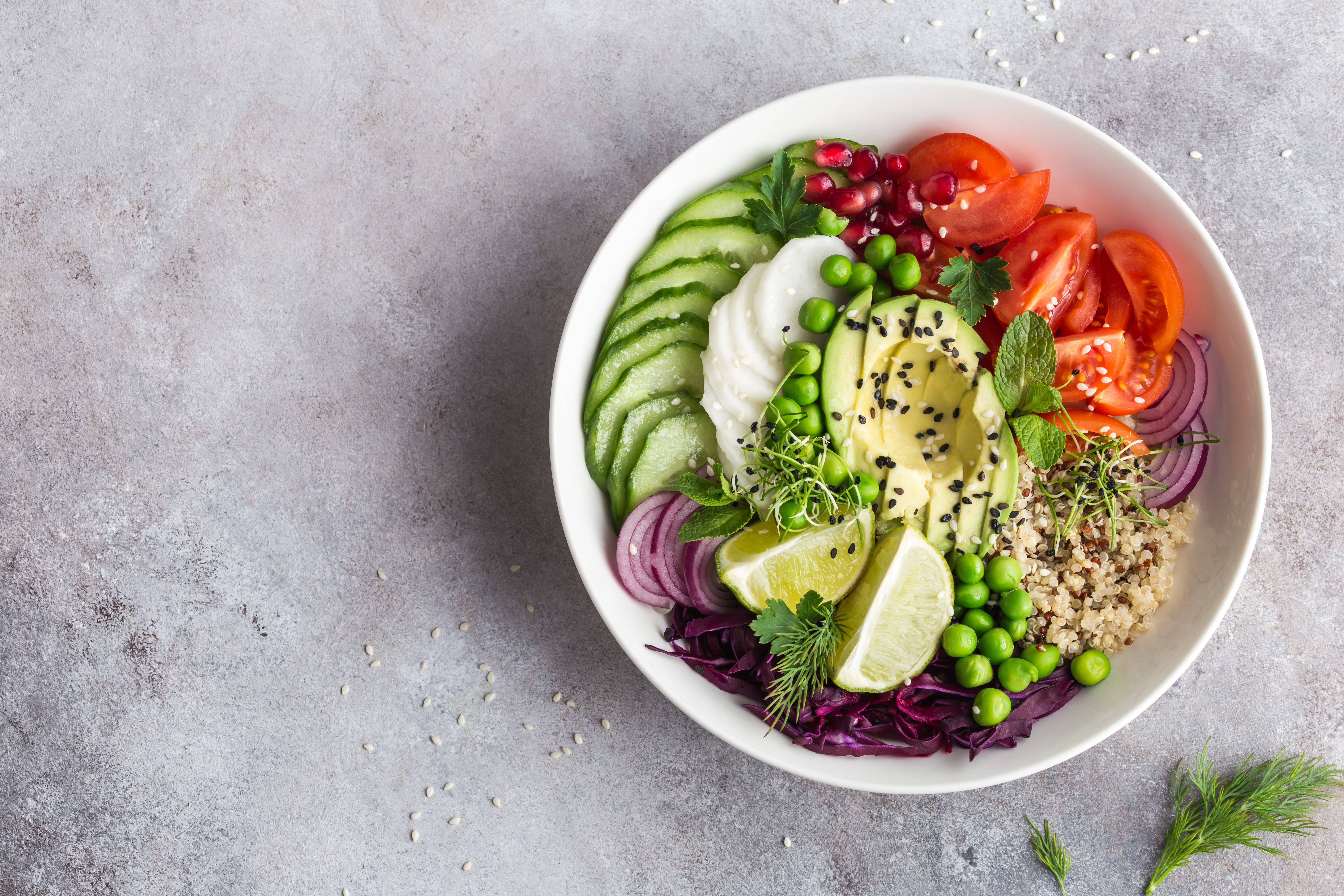
Is it necessary to supplement a raw vegan diet?
While a well-planned raw vegan diet can provide most nutrients, there are a few exceptions. Vitamin B12, vitamin D (if sunlight exposure is limited), and sometimes omega-3 fatty acids (from algae oil) are supplements commonly recommended for raw vegans.
Can raw vegans eat bread?
Traditional bread is not considered raw vegan because it's baked. However, raw vegans can enjoy dehydrated or sprouted breads made from nuts, seeds, and sprouted grains, prepared at temperatures low enough to maintain their raw status.
What are the best sources of calcium in a raw vegan diet?
Excellent sources of calcium for raw vegans include leafy green vegetables (such as kale and collard greens), almonds, sesame seeds (including tahini), chia seeds, and fortified plant milk.
How can raw vegans enjoy sweet treats?
Raw vegans can indulge in sweet treats from natural ingredients like fruits, nuts, seeds, dates, coconut, and raw cacao. Popular options include raw cakes, bliss balls, and fruit sorbets.
Do raw vegans age slower?
Some anecdotal evidence suggests that raw vegans may experience benefits such as improved skin health and fewer visible signs of ageing, likely due to the high antioxidant content of raw foods. However, scientific research on this specific claim is limited.
Can raw vegans eat pasta?
Traditional pasta is not raw or vegan. Raw vegans can enjoy alternatives made from spiralised vegetables (such as zucchini or carrots) or thinly sliced vegetables used as "noodles" in various dishes.
Can raw vegans drink alcohol?
Some raw vegans may choose to consume certain types of alcohol, but most prefer to avoid it due to its processing and the desire to maintain a clean, toxin-free diet.
Do raw vegans drink water?
Raw vegans drink water, often choosing filtered or spring water. Some also enjoy coconut water for its natural electrolytes.
Do raw vegans eat peanut butter?
Raw vegans can eat raw, unprocessed nut butters, including peanut butter, as long as they're made without added sugars or oils and not heated above raw food temperature standards.
Do raw vegans eat chickpeas?
Raw vegans can eat chickpeas that have been sprouted, which makes them digestible without cooking. Sprouted chickpeas can be used in salads, hummus, and other dishes.
Recommended for you!
Best SellersStudy Raw Food Nutrition for £29
Before starting a raw vegan diet, it's important to learn as much as possible, and our Raw Food Nutritionist Diploma Course is here to help. It's made to give you a better understanding of raw food diets, making it easier to get started and enjoy the benefits. For a limited time offer, we’re excited to present this fascinating course for just £29!
